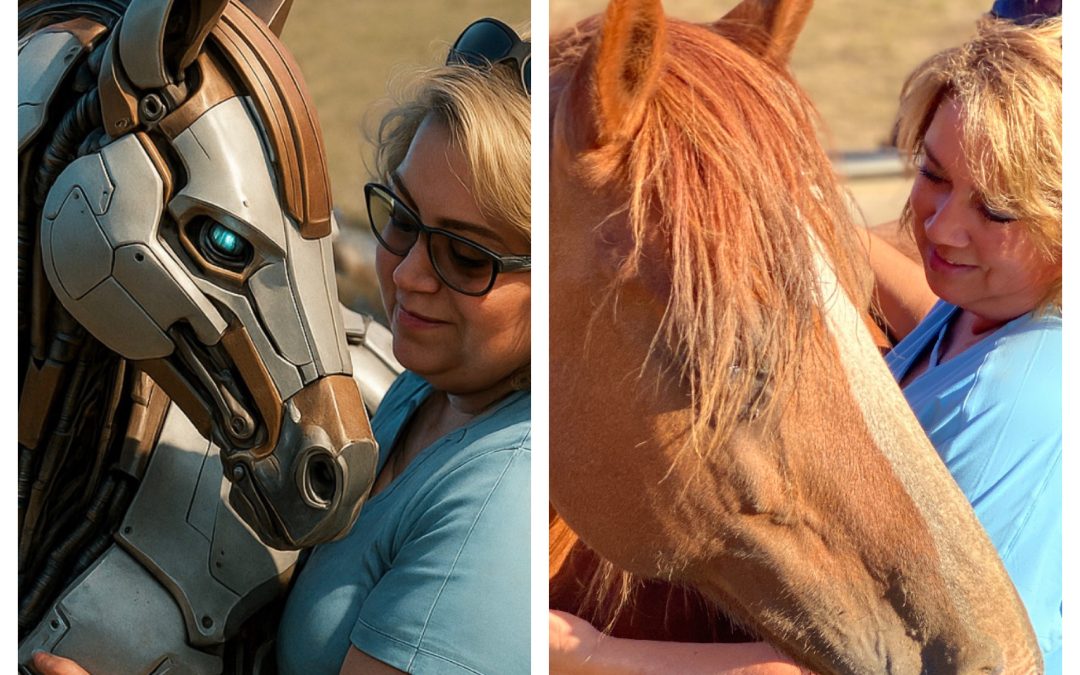I just read the 2025 Skills Horizon report and it got me thinking about the contrast between Animal Instinct (AI) and Artificial Intelligence (AI) — and how reconnecting with our human instincts is critical in a tech-saturated, AI-driven future.
Animal Instinct vs Artificial Intelligence: Rediscovering Human Connection in an Age of Algorithms
My husband is an IT partner in a global consulting firm and excitedly tells me of developments in the digital world, especially the advancements in AI. It is mind-blowing! On hearing this and doing my own research, I believe that the more sophisticated AI becomes, the more vital it is to remain deeply human.
As we accelerate into a decade defined by artificial intelligence, automation, and synthetic realities, an ancient intelligence quietly calls out to us — not coded in lines of software but hardwired in evolution: animal instinct.
This primal, embodied intelligence — intuition, empathy, social connection, ethical impulse — has guided humans for millennia. But in a world reshaped by the relentless logic of machines, we risk sidelining these vital faculties. And the stakes are high.
The Rise of Artificial Intelligence
Artificial intelligence has become the defining force of our time. From generative models that can simulate human conversation, to algorithms that drive decisions in healthcare, finance, and hiring — AI is no longer a tool. It’s its own ecosystem. And it’s changing how we work, think, and relate.
The 2025 Skills Horizon report describes AI not just as a productivity enhancer, but as a profound cultural force. AI fluency and generative AI usage are listed as critical leadership skills — capabilities that amplify everything else.
But alongside these opportunities comes a deep tension: As AI becomes more human-like, will humans become more machine-like?
Animal Instinct: The Lost Intelligence
Unlike artificial intelligence, animal instinct is not programmed — it is felt. It resides in our gut decisions, our empathetic impulses, our social rhythms, and our non-verbal cues. It is the source of trust, intuition, moral judgment, and belonging. And it cannot be automated.
Ironically, as AI begins to replicate outward signs of intelligence — language, creativity, decision-making — what separates us isn’t cognition. It’s connection.
“Our leaders must be much more human… more caring and more innovative.” David Gonski AC, Chancellor, UNSW
In disorienting times, this natural intelligence becomes our compass. We need to re-attune ourselves to the human — even the animal — in how we lead.
The Urgency of Human Connection
The 2025 Skills Horizon outlines five global shifts — values, technology, accountability, trust, and energy — all of which are destabilising traditional leadership models. Amid synthetic media, geopolitical fragmentation, and algorithmic decision-making, the greatest scarcity may be authentic human presence.
The report introduces “Productive Work Communities” as a critical amplifier of all leadership skills. And this requires emotional intelligence, flexibility, storytelling, and the ability to foster psychological safety — all rooted in our instinct to belong and connect.
“The truth is no longer the truth… Opinions become the new truth.”
Morten Wierod, CEO, ABB
In a world of deepfakes and misinformation, trust is no longer a default — it’s a deliberate act. Leaders must now build trust at scale, not through technological prowess alone, but by tapping into the animal instinct of authentic connection.
Rediscovering the Human Operating System
We often talk about AI as if it’s a new brain. But the future will belong to those who understand that the human operating system is not just logical — it’s emotional, embodied, and ethical.
- Empathy over efficiency
- Listening over automation
- Presence over performance
“What you will need is a new type of competence… like social sciences and humanities.” Dragoş Tudorache, Chair, EU AI Committee
Skills like humanities thinking, leading across generations, and mental wealth are rising to the top of the leadership agenda. These are not digital skills — they are animal instincts in disguise.
Instinct as Strategy
All of this made me think that in the age of Artificial Intelligence, Animal Instinct is not regression — it’s resilience.
We must remember that what makes us most effective as leaders isn’t how well we simulate intelligence, but how deeply we connect, relate, and care. The true power lies not in beating the machine — but in being more human than ever before.
So the next time you’re on your laptop or phone, ask yourself:
Can it feel trust? Can it build belonging? Can it hold ambiguity?

